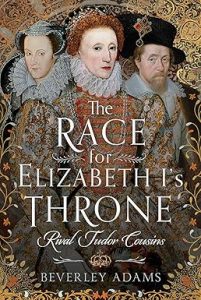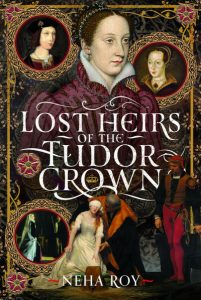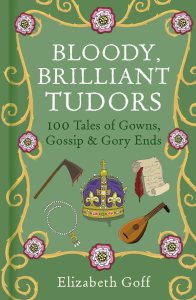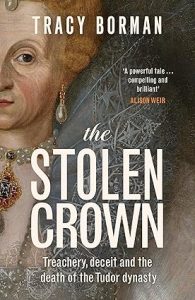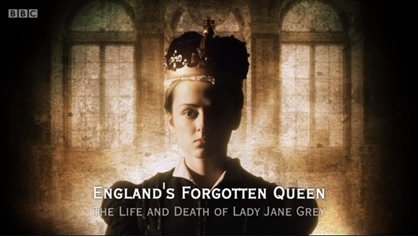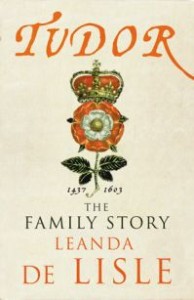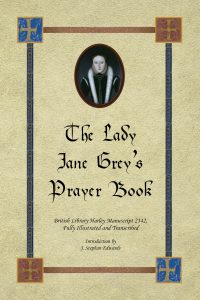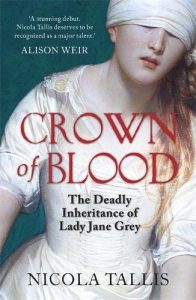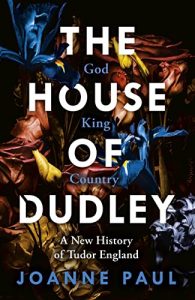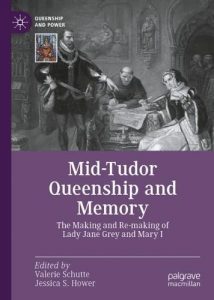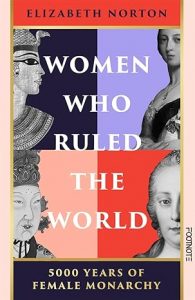Conor Byrne is the author of ‘Katherine Howard: Henry VIII’s Slandered Queen’ and his latest book, ‘Lady Katherine Grey: A Dynastic Tragedy’ was published in July by The History Press.
Buy ‘Lady Katherine Grey: A Dynastic Tragedy’:
Follow Conor Byrne on Social Media
Conor’s website: Conor Byrne Historian
Twitter: @executedqueens
Many thanks to Conor for answering my questions.
Why did you choose this subject for your book?
I have long been fascinated by the Grey family and by Katherine in particular. She is usually viewed as a tragic figure, whose clandestine marriage enraged Elizabeth I and resulted in her ruin, but Katherine’s dynastic significance deserves to be better known. According to Henry VIII’s last will and testament, she was Elizabeth’s heir and it should have been her son Edward who inherited the throne in 1603, rather than James VI of Scotland. Of course, the invalidation of Katherine’s marriage to the earl of Hertford meant that their sons were illegitimate and, legally, could not inherit the throne – but the proliferation of succession tracts during the 1560s makes it clear that Katherine’s claim received considerable support. Prior to her marriage to Hertford, there had been suggestions of a match with members of the ruling dynasties of Spain and Scotland, both of which testify to Katherine’s dynastic importance and the widespread perception of her as a viable candidate to succeed Elizabeth, should the queen die childless.
What does your book add to previous work about Katherine Grey?
My book seeks to study Katherine as a viable, even leading, candidate to succeed Elizabeth I, with emphasis on her succession rights. The Elizabethan succession question has long interested me, especially during the first decade of her reign, when Katherine and Mary, Queen of Scots were the leading candidates to be recognised as the queen’s heir presumptive – it would be fair to regard them as dynastic competitors. While the tragedy of Katherine’s life has long been known, I sometimes think it overshadows the strong claim she possessed to the throne as enacted in law during the reign of Henry VIII. Of course, if Elizabeth had followed her father’s wishes and recognised the claim of Katherine and her offspring, then the history of England – and Great Britain – would have been very different. Additionally, my biography contains an extended discussion of the succession tracts that circulated during the 1560s and analyses, in detail, the competing claims of Katherine, Mary, Queen of Scots and, to an extent, other candidates such as Margaret Douglas, countess of Lennox considered by the authors of the tracts.
Do you think Katherine harboured an ambition to be Queen of England?
I don’t think the evidence is sufficient to suggest that she did. It is clear at the beginning of Elizabeth’s reign that she resented the queen’s treatment of her, namely in demoting her from the Privy Chamber to the Presence Chamber, whereas she had been favoured by Mary I and had served her in the Privy Chamber. The imperial ambassador reported that Katherine believed ‘that the Queen does not wish her to succeed, in case of her (the Queen’s) death without heirs. She is dissatisfied and offended at this’. At this time, there was also a scheme to transport Katherine to Spain to marry Don Carlos, son of Philip II, but the extent of her involvement in this is unclear and the imperial envoys were unaware of Katherine’s developing relations with Hertford. Collectively, these circumstances might indicate dynastic ambition on Katherine’s part but, following her marriage to Hertford, there is no suggestion that she personally harboured any desire to succeed Elizabeth and she played no part in the succession debates of the 1560s.
What surprised you most researching this book?
I was aware of how tragic Katherine’s life was, but reading the letters that she wrote during house arrest (alongside those written by her uncle and custodian Lord John Grey) very clearly reveal her worsening state of mind and her gradual loss of hope. These letters are very human and shed light on a very personal tragedy taking place in the midst of the political debates that raged in London about which candidate possessed the strongest claim to succeed the queen. As these debates took place at court and in Parliament, one woman far away in the countryside was struggling to come to terms with the consequences of a marriage that had resulted in her ruin and her enforced separation from her husband and eldest son.
Do you think Katherine or her sons ever had a real chance of succeeding Elizabeth?
Katherine’s claim to succeed Elizabeth was strong because her succession rights had been recognised by Henry VIII during the 1540s in his last will and testament. If Elizabeth had elected to follow her father’s wishes, then Katherine’s son Edward would have become king in 1603. The imperial ambassadors recognised the strength of Katherine’s claim and sought a marriage between her and the son of Philip II of Spain. Moreover, during the succession debates of the 1560s, a number of tracts identified Katherine as the leading candidate to succeed Elizabeth. However, a set of circumstances complicated Katherine’s claim, chiefly her marriage to Hertford, which was invalidated on Elizabeth’s orders and their sons declared illegitimate. Moreover, there was a suggestion that the conviction and execution of Jane Grey in 1554 for treason meant that both of her sisters – Katherine and Mary – were ‘reproached with the same crime [and] are consequently excluded from the succession’. It does not appear that Elizabeth ever seriously considered Katherine (or Mary Grey) as a viable candidate to succeed her; she seems to have regarded the claim of Mary, Queen of Scots as superior.



